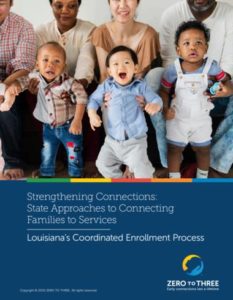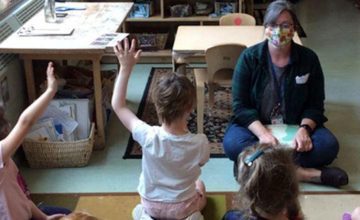The Louisiana Department of Education houses all early care and education programs. Between 2013 and 2015, Louisiana established 65 early childhood care and education community networks, which are parish-based and cover the entire state. Each community network has a lead agency, which serves as the fiscal agent and is responsible for conducting CLASS® observations in birth to 5-year-old classrooms, coordinating enrollment to improve processes for families, and applying for state funding.
 Families with young children face significant barriers in finding and accessing services to meet their needs. A complex array of services exists across health, early care and education, economic assistance, and family supports.
Families with young children face significant barriers in finding and accessing services to meet their needs. A complex array of services exists across health, early care and education, economic assistance, and family supports.
In Louisiana, every publicly funded early childhood program—including public and nonpublic pre-K, subsidized child care, and Head Start/Early Head Start—participates in Louisiana’s unified rating system and receives a performance profile based on CLASS® observations. Each summer, community networks complete a self-assessment in which they rate their performance on key aspects of the process. The self-assessment process guides community planning, informs the Department of Education’s technical assistance, and identifies promising practices to share across communities. The state established this system to strengthen connections using the following approaches:
- Community networks generally led by school systems
- Coordinated enrollment for publicly funded early care and education programs
- Unified application for publicly funded early care and education programs
- Program profiles available online
Read the case study to learn how Louisiana operationalized these approaches as well as lessons learned over the course of the work.
Interested in other states’ approaches? Read the other case studies in this series, here.




